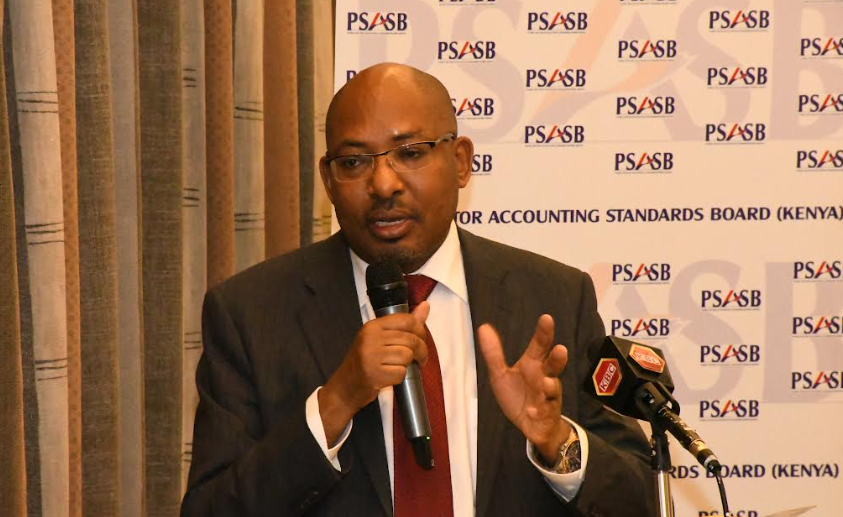The National Treasury and Public Sector Accounting Standards Board (PSASB) has voiced their approval of an accrual basis of accounting as opposed to the current cash basis used by Ministries, Departments and agencies, both in the National and County Governments.
The Director General (DG) of Accounting Services and Quality Assurance, National Treasury Mr. Bernard Ndungu stated that since the adoption of International Public Sector Accounting Standards (IPSAS) and the subsequent application of the same, transitioning to accrual accounting of the entities still reporting under the cash basis of accounting becomes the next key pronouncement that the board and the National Treasury was keen on making.
“This transition journey is quite demanding, it requires multi-stakeholder engagement, political buy-in, sound project management, technical knowledge and a change in mindset,” said Ndungu.
The DG said that Accrual Accounting is associated with far more benefits as compared to cash accounting such as pending Bills; which through Accrual accounting could be carried in financial statements as liabilities as this will enhance completeness, follow up and settlement of the bills.
He noted that Public Debt accrual accounting gives a complete view of the government indebtedness both in financial and non-financial terms through disclosures while pension liabilities needed to be measured and carried in the government’s balance sheet to ensure the demands of future cash outlays are understood and planned for.
Further, he said that in the inventory of assets through enhanced disclosures in the cash reporting environment, entities have been including a fixed assets summary as a key preparatory step towards accrual accounting.
“Transparency and accountability take center stage in our mandate as the National Treasury. We push for the transition because it enhances our mandate significantly,” said Ndungu.
At the same time, PSASB Chairman Pius Nduatih stated that with the setting up of the Board and adoption of the International Accounting Standards in 2014 came several achievements like standardization of financial reporting by public sector entities, efficiency and effectiveness of audit and other oversight activities. He however emphasized that the upward momentum should not stop.
“I commend all the transition preparatory work such as; the development of a transition roadmap, approval of National Assets and Liabilities Management Policy and development of a Standard Chart of Accounts, all aimed at making this complex transition seamless,” said Nduatih during a forum yesterday at a Nairobi Hotel organized by the Public Sector Accounting Standards Board on transiting the public sector entities from cash accounting to accrual accounting in a bid to enhance transparency and accountability in the use of public funds.
“This forum is the start of a very positive exchange, I urge everyone to engage in earnest because the issues that will emerge from our conversations today will inform our subsequent engagements with other stakeholders who are key in the transition process,” he added.
By Mike Mulinge and Irene Mwende




